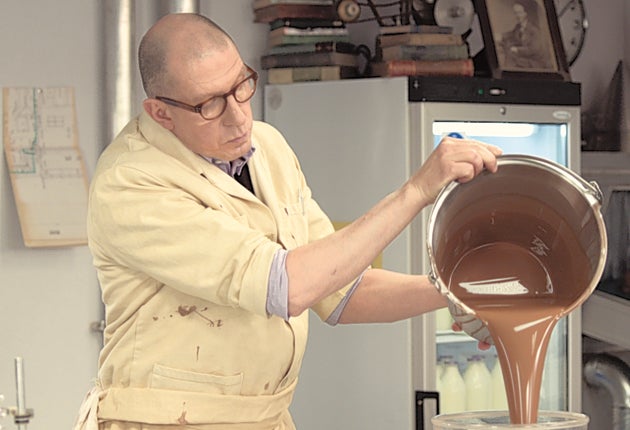Claire Beale On Advertising: Word of mouth will make us sit up and listen

This is the story of a family. They're called the Joneses and they're new in town. They've just bought the best house on the block, and they've got all the coolest gadgets, the chicest clothes. They're beautiful, glossy, buffed. Heck, the parents even still have sex. With each other.
You hate them, of course. Because you want to be them. You know that cliché "keeping up with the Joneses"? It was coined for this family. Or maybe they were coined for it. Because they're not actually a real family: the Joneses are a crack marketing unit paid to promote brands by stealth.
The Joneses, you see, know how to make everyone else want what they've got: the sharpest Ungaro couture; the very latest HTC video phone.
Predictably, it's not long before their new friends are drooling. And, naturally, the feelings of envy and inadequacy that all this inspires in the neighbourhood sends sales of these desirable brands soaring.
Now, before I succeed in confirming all your worst fears about voracious modern marketing, I should say that the Joneses aren't real.
Meet the Joneses is a new movie (Demi Moore is "mum", David Duchovny is "dad") based on issues of consumerism and the dangers of rampant materialism. It's not real life. Not quite. But the phoney family obliquely pushing brands to their friends is not so far removed from current marketing practices.
Word of mouth (WoM) marketing is one of the oldest forms of commercial communication but one that's gaining in popularity. Traditionally it took the form of embedding brand advocates into the community where they would seek to enthuse their friends or peer group about a brand.
These days it's as likely to mean advocates chatting to their online community. It's already basic marketing now for companies to send their latest product launches free to influential bloggers in the hope that they will write positively about the brand. And it's up to the blogger whether they declare to their readers that their opinions have been formed via a free gift or not.
But the UK lags behind America when it comes to stealth marketing. In the US, WoM is expected to be a $3bn (£1.95bn) industry within the next two years, rocket-fuelled by the growth in social media – the perfect platform for mass WoM marketing.
However the UK's WoM industry is about to get a boost that should see more marketers taking the technique seriously. WoM marketing is to be included in the ad industry's next big wave of research into the nation's media consumption, called Touchpoints. This means that WoM will finally have an implicit stamp of approval and a credible method of evaluation, which will reassure nervous marketers.
Many companies will not need much persuading to give WoM a try. It's easy to see the appeal it has for big brands. This is not the sort of marketing you can switch off with your remote control. You might not even realise you're being sold to.
And because the best brand advocates are people whose opinions are trusted, there's a credibility there that more overt marketing techniques struggle to achieve. Nevertheless, it is controversial territory: marketers necessarily have to cede a significant degree of control over how their brands are presented.
And the lack of transparency – and the vulnerability this creates among the target consumers – has to be handled particularly carefully. Reports of some WoM companies targeting children as brand ambassadors have not done the industry's respectability any favours either.
For all its potential power, word-of-mouth marketing is a risky business. As you'll find out if you watch Meet The Joneses, people really do not like it if they discover they have been duped.
Best in Show: Cadbury (Fallon)
*Cadbury has made some superb television ads in recent years: the drumming Gorilla, the dancing eyebrows. Then Cadbury got bought by Kraft. And its ad agency Fallon has been having a challenging time. So adland has been wondering if the new Dairy Milk ad will prove that Cadbury's marketing has been castrated by Kraft and that it's ad agency has lost its touch. No on both counts, I'd say. The new campaign, pictured left, is wacky, like its predecessors. But it's more about the product. A bowl of milk and a bowl of chocolate are whipped up into a frenzy at the Cadbury factory by a guy who spins them like a couple of funky records on a mixing desk. No matter how much I adore Cadbury's previous ads, this is the one that made me want chocolate.
Subscribe to Independent Premium to bookmark this article
Want to bookmark your favourite articles and stories to read or reference later? Start your Independent Premium subscription today.

Join our commenting forum
Join thought-provoking conversations, follow other Independent readers and see their replies